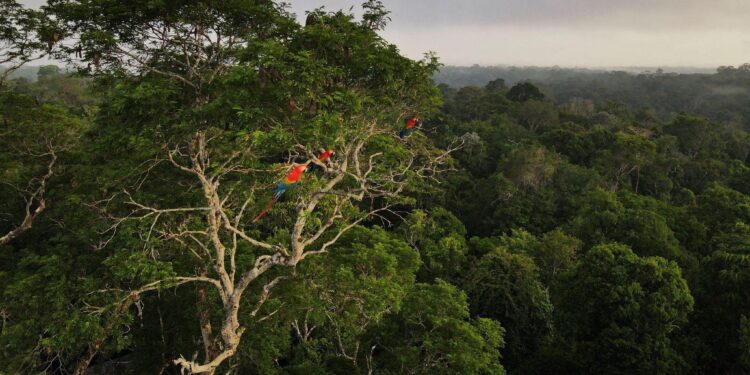At the appointment scheduled for Tuesday and Wednesday, a rehearsal will take place prior to COP30, a crucial meeting to confront global warming, which will take place in 2025 in Belém, a city in the Amazonian state of Pará, north of Brazil. This event will bring together the eight member countries of the Amazon Cooperation Treaty Organization (OTCA): Bolivia, Brazil, Colombia, Ecuador, Guyana, Peru, Suriname, and Venezuela. With the exception of Ecuador and Suriname, whose ministers will represent them, the other presidents have confirmed their participation in the summit, according to the host.
The Amazon, known as the lungs of the planet, faces a critical situation due to deforestation, which has led it to emit more carbon than it can absorb, exacerbating global warming. In 2020, carbon dioxide emissions in this vast 6.3 million km2 region increased by 117% compared to the 2010–2018 annual average, according to Brazil’s National Institute for Space Research (INPE).
President Lula, who returned to power with a promise to protect the Amazon, said the summit will seek ways to develop the region sustainably without destroying its valuable ecosystem, 60% of which is in Brazil. The presidents will discuss strategies to combat deforestation and organized crime as well as promote sustainable development in the area, which is home to almost 50 million people, including hundreds of indigenous people who were essential to saving the forest.
One of the main challenges will be reaching a joint commitment to eliminate deforestation, driven in large part by the expansion of land for cattle ranching. Although deforestation has been detected significantly during the Jair Bolsonaro government, signs of a decline in the index have recently been registered. More than 50 NGOs have urged Amazonian countries to adopt a protocol within two years to prevent the Amazon from reaching a point of no return.
The summit will be attended by representatives from Norway, Germany, and France, major donors to the Brazilian Amazon Fund. The presence of representatives of the Democratic Republic of the Congo and Indonesia, whose territories are home to tropical forests, is also expected. The event in Belém will have the active participation of Amazonian indigenous people, civil society, scientists, and international organizations. The summit seeks to establish an ambitious agenda that guides countries in the coming years to preserve and develop the Amazon in a sustainable manner.










